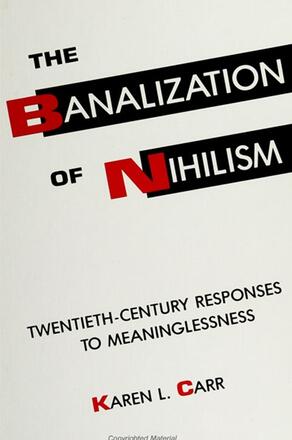
The Banalization of Nihilism
Twentieth-Century Responses to Meaninglessness
Alternative formats available from:
Description
After a historical and conceptual overview of the changing face of nihilism in the last century, Carr examines Nietzsche's diagnosis of nihilism as modernity's major crisis. She then compares the responses to nihilism given by the early Karl Barth and by Richard Rorty.
To some, nihilism is losing its crisis connotations and becoming simply an unobjectionable characteristic of human life. Carr argues that this transformation ultimately absolutizes community preference and reflects an increasing inability to criticize and change the existing structures of thought. The author contends that the uncritical acceptance of nihilism, which characterizes much of postmodernism, ironically culminates in its complete opposite—dogmatism.
Karen L. Carr is Assistant Professor of Religious Studies at Lawrence University.
Reviews
"This book is an important contribution to the growing literature on nihilism and its role in contemporary culture. The commonalities the author demonstrates among such seemingly disparate thinkers as Nietzsche, Barth, and Rorty are illuminating, and I found especially intriguing her claim that Nietzsche and Barth are closer to one another than either is to Rorty. " — Donald A. Crosby, Colorado State University